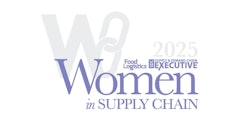
The question that arises more than often than not is, “How can businesses balance the circular economy while running a traditional business and keep their customers in the bargain?”
Unfortunately, moments of affirmation are a rarity in sustainable packaging. And this transition to sustainability is incredibly difficult to do when you look at it through a purely capitalist lens. Especially when it’s a new concept to a business. The best way to balance sustainability with traditional business is to look at it from a conscious capitalist perspective – operating ethically while pursuing profits.
Understanding “why” is the north star of any business about to embark on this journey. Sustainable workplaces are built on discipline and strong data just as much as raw ambition.
Sustainability is about having good intentions backed by well-informed, diligent actions. Thankfully the carefully crafted tools and well-honed expertise we offer more than occupy that space in many organizations.
A smart, strong recycling policy like extended producer responsibility (EPR) can provide the resources needed to bring necessary change to recycling infrastructure and move closer to a circular economy. It can provide a sustainable funding source for recycling systems and make them more efficient. And it is good for a business’s bottom line.
The retail sector has responded slowly to climate change, but a revolution is on the horizon, with companies caving to consumer pressure to improve processes and prove that they are adopting sustainable practices.
People have debated the merits of recycling from the kitchen table to the editorial pages for decades. Many of the misconceptions are born out of the tug-of-war between brands, retailers and manufacturers in designing packaging that can be recycled, those who drive the anti-waste agenda and those declaring today’s recycling is fundamentally broken.
So, while many businesses keep reinventing the wheel and trying to devise ways of doing things and doing them badly, the EPR approach has been tried and tested worldwide. The mission remains to rise above this confusion and advocate for progressive change.
However, there are many examples of how failure, principally by the government to set common standards and ensure delivery at pace and scale, continues to undermine the rollout of sustainable solutions.
Guiding businesses toward change
What chance do we have when consumers, or the public, will look to some of these businesses for a good experience of the green transition?
The current economic pressures are no doubt causing business issues, and it’s not surprising that eyes may have been diverted elsewhere, but surely, we have come to understand how this plays out.
Make it a goal to provide full transparency of all materials, processes, partners and facilities, from materials to finished products.
The incentive for brands is only increasing, but what about the motivation for consumers? We cannot wait for everyone to care, actively prioritize sustainability and afford the premiums often associated with more environmentally conscious products. Aim to make the sustainable product and pack the go-to option regardless of motivation.
No more time wasting
Packaging waste is a historical problem that isn’t going to go away. Food packaging from circa 40 years ago regularly washes up on beaches, yet it doesn’t seem to bring about anything near the required step change in thinking.
Further delays to progress on consistency are no surprise but calls for the process to be scrapped are disappointing. Go ahead with the ambitious reforms proposed by EPR, shifting the cost burden for collections from local authorities to producers (and consumers). In that case, have consumer-facing consistency regarding what people can and cannot recycle. Even at the most basic possible level, there is no consistency in bin color and meaning. The tone for successful optimization of EPR policy must be so vividly set.
So, the next time you buy from a brand, remember you can dictate to the markets what you will and won’t accept. Remember, those that contributed to the troubled journey of EPR policy and actively swam against the tide.




















